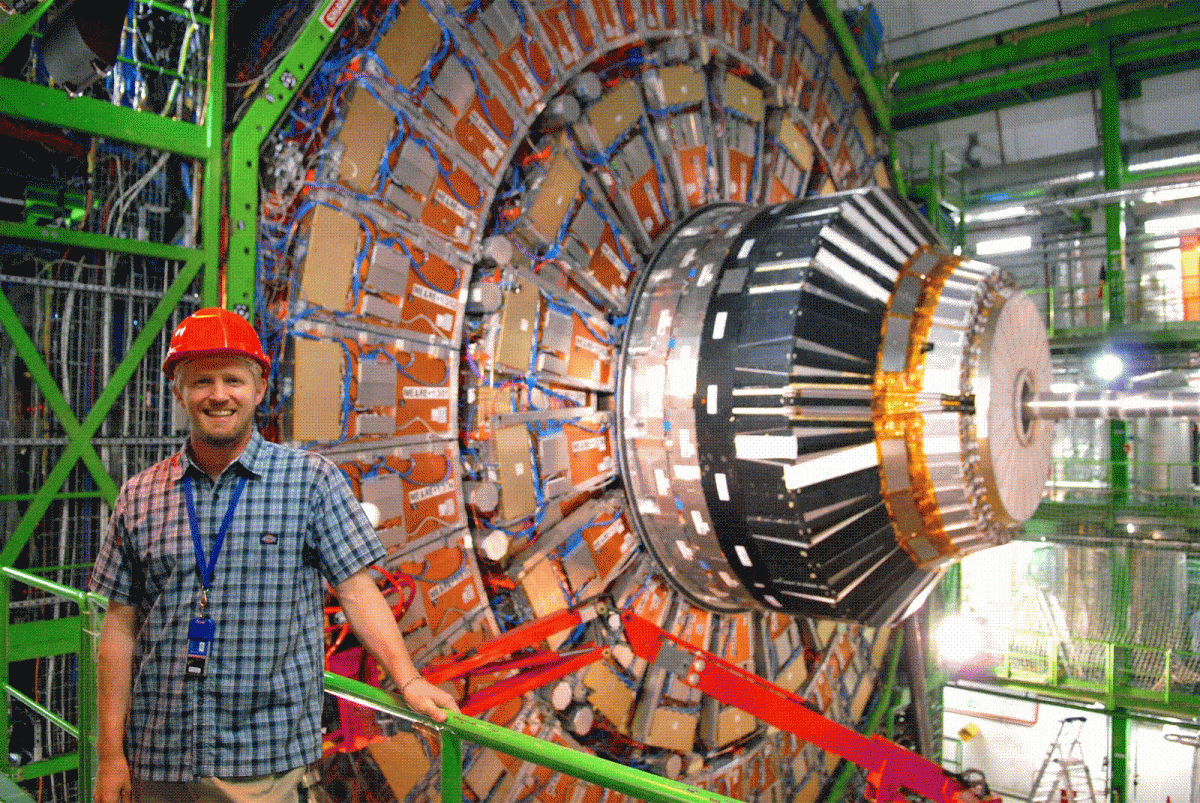Greg Rakness: CMS co-Run Coordinator
The CMS Run Coordination team is made up of three people: Christoph Schwick and myself as co-Run Coordinators and Silvia Goy Lopez as coordinator of the Detector Performance Groups. Together we manage the commissioning and operation of the CMS detector with the overarching goal to deliver physics quality data efficiently to the collaboration.

I did my PhD at University of Colorado Boulder, spending my formative years working on drift chambers and writing my thesis on phi meson production in the HERMES experiment at HERA. As a postdoc, I worked on Pb-glass and Pb-scintillator sampling electromagnetic calorimeters, writing papers on spin and heavy ion physics in the STAR experiment at RHIC. At this point I changed my focus to high energy particle physics since it was becoming clear that the future was at CERN, and I joined up with the CMS experiment working on the trigger system in the Cathode Strip Chambers. The dynamic, multi-faceted puzzle of complicated interfaces within this muon trigger subsystem and the challenge of integrating it into the CMS trigger and data acquisition machine got me “hooked” on operations, and in 2012 I became the deputy Run Coordinator. I have been part of the CMS Run Coordination team ever since.
During this Long Shutdown 1 (LS1), CMS began the implementation of a multi-step plan to upgrade the detector for the new conditions expected from LHC during Run-2, namely higher energy, smaller spacing between bunches, and larger luminosity per bunch. To meet these expectations, every subsystem in CMS has been modified during LS1 to improve its performance. To commission, we chose the strategy to work on interfaces early, and over the past year we have performed a series of nine short “mid-week global runs” to bring subsystems together to run as one coherent whole. This strategy has paid off, and we are presently collecting data in “production mode” to align the detector with cosmic rays.
The thing I truly like about my job as Run Coordinator is the people I work with. Everybody I know works very hard, and there is a wide range of cultures and a variety of personalities which I cherish. I appreciate the opportunity to work with the LHC operations teams and the other experiments’ Run Coordinators, together with the LHC Programme Coordinators. Most of all, I cannot express enough appreciation I have for the team spirit which pervades the atmosphere in operations. Everyone knows that in order to be a success, the entire team has to succeed. Every subsystem in CMS must operate at the highest level, the LHC must deliver high intensity collisions, and, strange as it may sound, our “competitors,” ATLAS, LHCb, and ALICE, need to discover as much new physics as we do.
A colleague once advised me that new features would be discovered with every new operating condition, with every increase in luminosity, every change in trigger rate… CMS is looking forward to collisions in 2015!
Watch Greg Rakness talking about the challenges of "herding cats" (video produced by US LHC):
